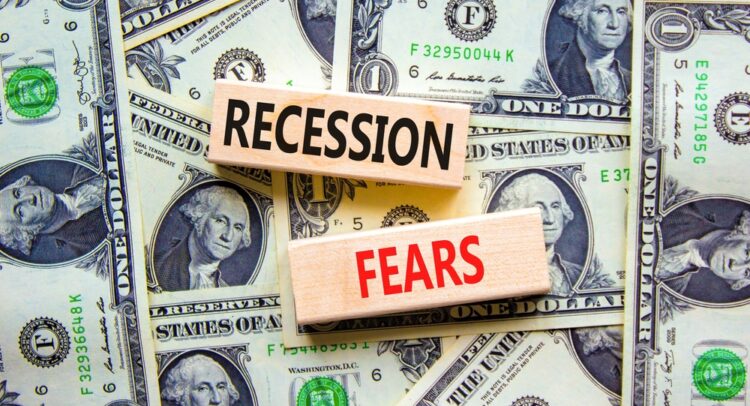JPMorgan (JPM) is sounding the alarm. The firm warns that President Donald Trump’s latest tariffs, announced on Liberation Day, amount to the largest tax increase in the U.S. since 1968. While these tariffs are not direct taxes, they raise the cost of imported goods, driving up prices for consumers. The bank cautions that the economic strain from higher costs could push the U.S. closer to a recession.
The stock market has already shown signs of distress. The S&P 500 (SPY) fell by 4.9%, while the Nasdaq 100 (QQQ) dropped nearly 6%, erasing billions of dollars in market value. Looking to commodities, gold prices have declined by 1%, cooling the metal’s recent rally, while oil prices have dropped nearly 8% amid concerns over new tariffs and increased production from OPEC+ members.
How Big Is the Impact?
JPMorgan said that the average U.S. tariff rate has now climbed to its highest level in over a century, increasing by 22%. Economists argue that this sharp rise could slow economic growth and place a financial burden on American households.
As businesses face higher import costs, they are likely to pass these expenses on to consumers, making everyday items like cars, electronics, and household goods more expensive.
Rising Fears of a Recession
JPMorgan has raised its estimate of a global recession from 40% to 60%, citing the risks posed by these tariffs. Analysts said retaliatory tariffs by other countries will make things worse. For instance, Jeep maker Stellantis (STLA) has stopped production at its Mexico and Canada plants. Meanwhile, Volkswagen has added an “import fee” on U.S. shipments, paused rail deliveries from Mexico, and halted some European imports. At the same time, major retailers like Walmart (WMT), Best Buy (BBY), and Target (TGT) are warning of price hikes.
Making things worse, business sentiment in the U.S. is slipping, and supply chain issues are piling up. As costs rise and trade tensions heat up, companies are feeling the pressure. Markets have tumbled, fueling fears of a looming recession.
What Is the Price Target for JPM?
Turning to Wall Street, JPM stock has a Moderate Buy consensus rating based on 11 Buys and seven Holds assigned in the last three months. The average price target for JPM stock is $274.38, suggesting a potential upside of 19.98% from the current level. Shares of the company have lost 4.1% year-to-date.

See more
















